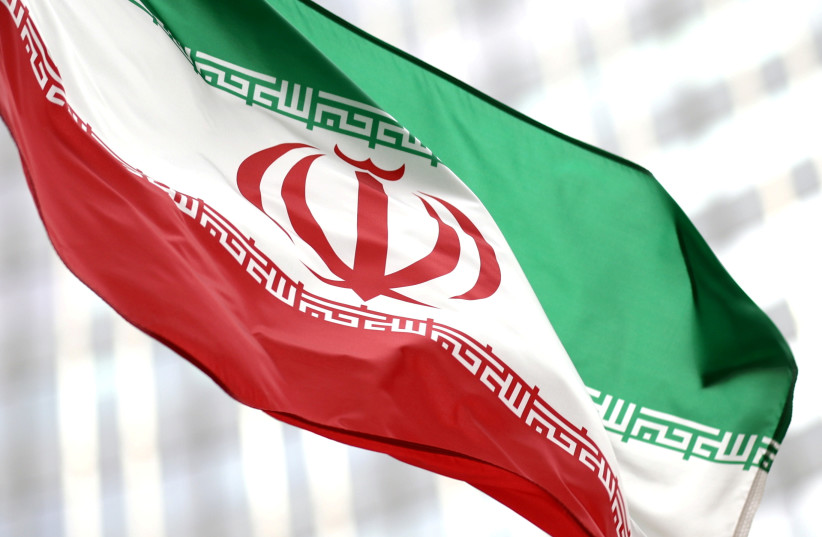IAEA Director-General Rafael Grossi warned that if Iran does not reopen access points to the agency’s inspectors within three to four weeks, the 2015 Iran nuclear deal would suffer a “fatal blow,” because the International Atomic Energy Agency would no longer be able to estimate the status of Iran’s nuclear program.
Grossi went so far as to say that even if the US and world powers reached a new deal with Iran sometime after four weeks, his agency would be unable to competently advise them how much Tehran would need to reduce its nuclear program to prevent it from crossing the nuclear threshold.
On Wednesday night, the IAEA Board of Governors voted to censure Iran for its violations. Grossi said that Iran told the agency it would shut off 27 surveillance cameras at several key nuclear facilities.
At the same time, the IAEA chief said that around 40 cameras would continue to operate. The agency’s access to its own cameras has been intermittent since February 2021.
Grossi indicated that after three to four weeks, the IAEA would lose its “point of continuity” at which it could estimate Iran’s nuclear status, based on partial data.

US Secretary of State Antony Blinken issued a statement later on Thursday that said Iran must cooperate with the IAEA, “and provide technically credible information in response to the IAEA’s questions, which is the only way to remove these safeguards issues from the board’s agenda.
“Unfortunately, Iran’s initial response to the board’s action has not been to address the lack of cooperation and transparency that prompted a negative report from the IAEA director-general and such strong concern in the board, but instead to threaten further nuclear provocations and further reductions of transparency.”
“Unfortunately, Iran’s initial response to the board’s action has not been to address the lack of cooperation and transparency that prompted a negative report from the IAEA director-general and such strong concern in the board, but instead to threaten further nuclear provocations and further reductions of transparency."
US Secretary of State Antony Blinken
“Such steps would be counterproductive and would further complicate our efforts to return to full implementation of the JCPOA. The only outcome of such a path will be a deepening nuclear crisis and further economic and political isolation for Iran. We continue to press Iran to choose diplomacy and de-escalation instead.”
He noted, however, that the United States remained committed “to a mutual return to full implementation of the JCPOA. We are prepared to conclude a deal on the basis of the understandings we negotiated with our European allies in Vienna over many months. Such a deal has been available since March, but we can only conclude negotiations and implement it if Iran drops its additional demands that are extraneous to the JCPOA.”
IAEA criticism of Iran
After the IAEA issued a resolution critical of Tehran on Wednesday, Iranian President Ebrahim Raisi responded on Thursday by saying Iran will not change its position, Iranian state media reported.
“In the name of God and the great nation of Iran, we will not back off a single step from our positions,” Raisi said in a speech in southwestern Iran. A video of the speech was carried by state media.
The resolution overwhelmingly passed by the UN nuclear watchdog’s 35-nation Board of Governors criticized Iran for failing to explain uranium traces found at three undeclared sites, said diplomats at a closed-door meeting.
Only two countries, Russia and China, opposed the text, while 30 voted in favor and three abstained.
Notably, the censure does not yet call for a referral to the UN Security Council.
The draft resolution text that was submitted said the board “expresses profound concern that the safeguards issues related to these three undeclared locations remain outstanding due to insufficient substantive cooperation by Iran.”
The text, seen by Reuters, also said the board “calls upon Iran to act on an urgent basis to fulfill its legal obligations and, without delay, take up the [IAEA] director-general’s offer of further engagement to clarify and resolve all outstanding safeguards issues.”
Indirect talks between Iran and the United States on reviving the 2015 deal have not been held since March.
Initially, the ayatollahs’ response fell far short of concern that it would employ more extreme retaliation options, such as expelling all nuclear inspectors, withdrawing from the Nuclear Non-Proliferation Treaty, or enriching its uranium stock to the 90% weaponized level.
However, following Grossi’s evaluation of the impact of disconnecting 27 cameras – as opposed to the original announcement that only two cameras would be disconnected – the situation took on a far more desperate tone.
Grossi himself contributed to the escalation by using the dramatic phrase “fatal blow,” whereas his predecessors would likely have downplayed the conflict with bland words like “unhelpful” or “having a negative impact.”
If Iran continues to ignore the violations identified by the IAEA, the board could refer the matter to the UN Security Council at its next meeting in three months, which could culminate in a full global snapback of sanctions.
Reuters contributed to this report.
